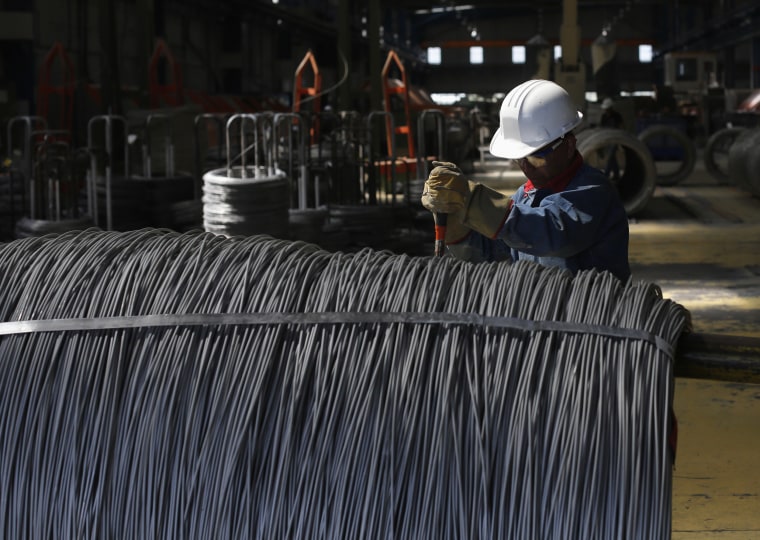The U.S. will lift the steel and aluminum tariffs it imposed on Canada last year, President Donald Trump announced Friday, while Canada will, in turn, withdraw the retaliatory tariffs it had levied on billions of dollars of American imports.
The move not only clears the deck for Trump to focus on trade negotiations with China, but paves the way for the eventual ratification of the United States-Mexico-Canada Agreement, which replaces the nearly 25-year-old North American Free Trade Agreement.
"Canada was charging us extremely high tariffs," Trump said Friday, in remarks at a real estate convention in Washington. Such levels were essentially "a barrier" that told the U.S. "we don't want your business," Trump noted.
The accord also includes a provision that imports "meaningfully beyond historic volumes of trade" would lead to re-imposition of the tariffs, according to a joint statement released Friday afternoon. The two sides have also agreed to monitor the origins of such an increase, in order to ensure other countries do not "dump" steel or aluminum in countries that do not pay tariffs.
The move last March to implement tariffs under the guise of national security measures triggered strong response across the globe, including a firm reproach from Canadian Prime Minister Justin Trudeau, who denounced the punitive tariffs as "totally unacceptable" and "an affront," saying that the very idea that Canada could be considered a national security threat to the United States is "inconceivable."
Trump’s decision to levy the 10 percent tariff on aluminum and 25 percent on steel imports — without including a waiver for two of the country's closest trading partners — triggered retaliatory tariffs of $12.8 billion on American imports, which Canadian Foreign Minister Chrystia Freeland said at the time was "the strongest trade action Canada has taken in the post-war era."
A statement from Mexico is expected later Friday, according to people familiar with the matter.
Mexico said last year it would “impose equivalent measures to various products in the face of U.S. protectionist measures,” noting it “deeply regrets and rejects the decision of the United States to impose these tariffs on imports of steel and aluminum from Mexico.”
Every job saved or created by the steel tariffs costs Americans around $900,000, according to a recent study by the Peterson Institute for International Economics.
U.S. Trade Representative Robert Lighthizer met with Freeland this week, and Trudeau's office said Trump and the Canadian Prime Minister spoke about the tariffs earlier on Friday.
The renegotiation of NAFTA was one of Trump's campaign pledges. If the deal can finally reach approval, the new agreement could head to Congress for a vote before lawmakers leave for their August recess.

